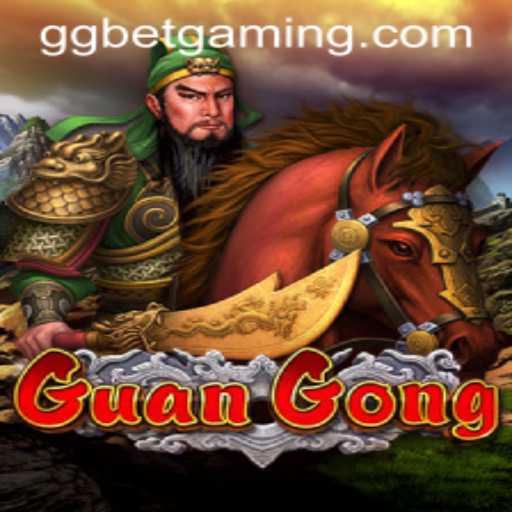
Why Choose Sport in GG.BET
- ⚽
Full Coverage
Follow a wide variety of sports, including football, basketball, and more.
- 📊
Detailed Statistics
Access comprehensive data to help you make informed decisions.
- 🎁
Special Promotions
Earn exclusive bonuses and participate in end-of-year offers.
Monopoly: Market Dynamics and Case of GG.BET
- 🏆
Soccer
Watch live matches and enjoy the best betting options.
- 🏀
Basketball
Dive into the on-court action with exclusive stats and analysis.
- 🎾
Tennis
Bet on international tournaments with competitive odds.
BaseballFever: An In-Depth Exploration of a Thrilling Baseball Simulation Game
Discover the exciting world of BaseballFever, a captivating baseball simulation game with engaging gameplay and detailed rules. Explore its features, current events, and integration with platforms like GG.BET.
- 📖
Study team statistics and performance before betting.
- 🕒
Gamble responsibly and set clear limits.
- 💡
Take advantage of seasonal promotions to maximize your earnings.

Monopoly

Monopoly: Understanding Its Impacts and Insights on Market Dominance
When discussing market dynamics and economic competition, the term monopoly often emerges. Monopolies represent a scenario where a single company or entity dominates the market, exerting a significant influence over their product or service sector. While the concept has been historically linked to antitrust debates and regulatory scrutiny, it's crucial to delve deeper into how monopolies form, their impacts, and perhaps consider the striking case of companies such as GG.BET.
Understanding Monopoly
A monopoly occurs when a specific company becomes the sole provider of a particular product or service. This unique position allows the company to control prices, regulate supply, and hinder competition. Monopolies arise due to various factors, including high barriers to entry for other firms, control over a critical resource, government policies favoring a single entity, or through mergers and acquisitions that eliminate competition.
The Elements Leading to Monopolies
Monopolies don't just happen overnight; they are the result of strategic maneuvers and market conditions. Key factors include:
- Control of Resources: A company can monopolize a market by controlling essential raw materials or technology.
- High Capital Requirements: New entrants face substantial financial barriers when entering sectors dominated by established players.
- Government Regulation: Sometimes, governments may inadvertently or deliberately create monopolies through regulatory frameworks.
GG.BET: A Case Study
In the realm of online gaming and betting, GG.BET serves as an interesting subject for understanding monopolistic tendencies. While the company has not been formally labeled a monopoly, its growing influence in the sector provides insights into how businesses can gain significant market influence through innovative strategies and value propositions.
One of GG.BET's significant competitive advantages is its specialization in eSports betting—a rapidly growing market sector. By focusing on a niche area with potential for high engagement, GG.BET capitalizes on being a leading player in a specialized field. Additionally, the integration of technology and user-friendly platforms makes it accessible and appealing to a tech-savvy audience.
Impacts of Monopoly
While some may argue in favor of monopolies due to their ability to fund large-scale investments and innovation, they also raise significant challenges in competitive markets:
- Price Manipulation: Dominant firms can set prices detached from competitive pressures, potentially leading to higher costs for consumers.
- Decreased Innovation: With reduced competition, monopolies may have less incentive to innovate or improve their offerings.
- Limited Consumer Choices: The absence of other players restricts variety and consumer options.
Regulating and Mitigating Monopolistic Power
Governments worldwide have instituted laws and regulations to curtail the unchecked power of monopolies, ensuring consumer welfare and encouraging fair competition. Antitrust laws specifically target activities that unfairly inhibit competition, such as price-fixing agreements, market division schemes, and other forms of collusion.
Competition authorities also assess mergers and acquisitions rigorously. If a proposed merger threatens to create or strengthen a monopoly, thereby harming fair competition, regulatory bodies may block such activities.
The Role of Innovation and Competition
Even in industries dominated by large players, innovation remains a key lever to counteract monopolistic stagnation. Aspiring companies can enter niches with cutting-edge solutions, disrupting the status quo and paving the way for industry evolution. For instance, as seen in the case of GG.BET, innovation in technology and customer engagement can build significant competitive edges.
The Future of Monopolies in the Digital Age
The digital age introduces new dynamics into the concept of monopoly. Online platforms, data control, and network effects can create near-monopolistic conditions without traditional resource control. Companies like GG.BET in the online betting space reflect this shift. As digital markets evolve, regulators and industry players must navigate the fine balance between fostering innovation and ensuring competitive fairness.
While not exhaustive, the exploration of monopolies, especially with cases like GG.BET, underscores the importance of vigilance, innovation, and regulation. These are crucial to ensuring markets remain competitive and consumers' interests are protected.
News Center
-

Dive into the world of LuckyBoxes, a game of chance and excitement, and discover how GG.BET is becoming an integral part of the gaming experience.
-

Immerse yourself in GuanGong, a thrilling game inspired by the exploits of the legendary Chinese general, Guan Yu. Explore its captivating features and rules.
-

An in-depth look at the MidasFortune game, examining its features, gameplay mechanics, and the dynamics of playing on platforms like GG.BET.
-

Dive into the world of RunningAnimals, a thrilling new game that's capturing the imaginations of gamers everywhere. With its unique mechanics and engaging gameplay, this title is set to redefine online gaming experiences.
-

Discover the captivating game of Burning Wins on GG.BET, exploring its features, rules, and the thrilling experience it offers to players today.
-

Dive into the vibrant world of DiamondExplosionPatriots, exploring its unique gameplay while understanding the impact of GG.BET in the gaming industry.
-

Delve into the captivating world of 'IrishWeekendBonusBuy', an exhilarating game available on GG.BET that combines chance, strategy, and cultural charm.
-

Explore the exciting world of Billionaire, the latest sensation on GG.BET. Learn about its gameplay, rules, and what makes it a must-play.


